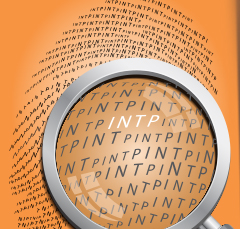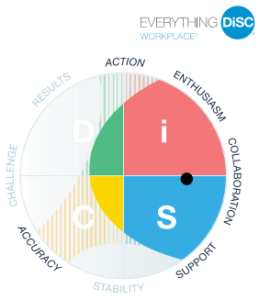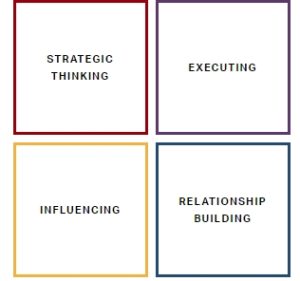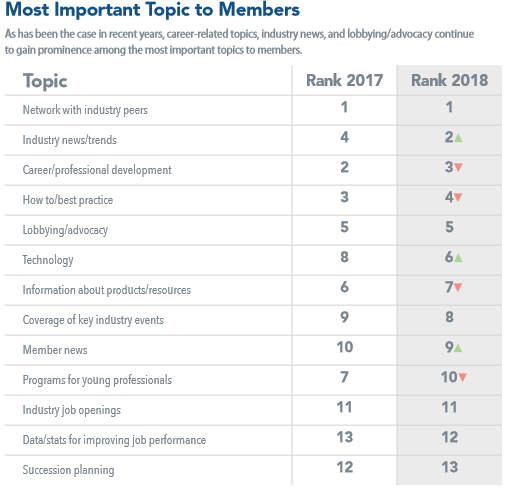Personality Tests and the ‘I’ in Team
The United States is a melting pot — a place where people of all cultures, backgrounds and personalities coexist. These differences merge into what makes America unique and capitalizes to build our infrastructure and economy. Our homes are commonplaces of individual attitudes and identities that shape our families, and our work environments are microcosms of society that shape our businesses. At work we are exposed to skills, experiences and personalities that are unalike and at times don’t seem to mesh. Most times, our solution is to find a common ground and dwell there, but there are more options.
Personality tests are a great way for professionals to discover their talents, skills and to help effectively explain who they are and their work ethics. With personality tests, your association leaders can assess each member by evaluating their strengths and weaknesses and use those results to create higher quality groups to achieve the best outcomes.
For starters, here are three popular personality tests:
Myers-Briggs Type Indicator:
 Created by Isabel Myers and her mother Katharine Cook Briggs, the Myers-Briggs Type tests are used to understand individual differences and to increase productivity in diverse groups. Myers and Briggs adopted ideologies and four dichotomies from C. G. Jung, founder of analytic psychology, to create a questionnaire which identifies the personality type that fits you best.
Created by Isabel Myers and her mother Katharine Cook Briggs, the Myers-Briggs Type tests are used to understand individual differences and to increase productivity in diverse groups. Myers and Briggs adopted ideologies and four dichotomies from C. G. Jung, founder of analytic psychology, to create a questionnaire which identifies the personality type that fits you best.
- Favorite world: Do you prefer to be around people or are you content by yourself? This is referred to as Extrovert (E) or Introvert (I).
- Information: Do pay attention more to your senses or do you channel your intuition and find deeper meaning in things? This is referred to as Sensing (S) or Intuition (N).
- Decisions: Do you base your decision making on logic or the influence from other people or circumstances? This is referred to as Thinking (T) or Feeling (F).
- Structure: Do you prefer to be more tasks oriented or are you flexible and spontaneous? This is referred to as Judging (J) or Perceiving (P).
Once the test is completed, you are given a code with four letters. This is known as your personality type. This test enables groups to get a better understanding of their teammate’s preferences. A quote by Isabel Myers from www.myersbriggs.org said, “When people differ, a knowledge of type lessens frictions and eases strain,” Myers said. “In addition it reveals the values of differences. No one has to be good at everything.”
DiSC Test:
 Used by more than 1 million people every year, DiSC, made by Dr. William Marston, gives you a series of detailed questions that analyze your personality and behaviors, and presents tips about how you can use what you learned to work with others. The assessments present phrases for you to respond to that are created in a Likert Type Scale form. Following the exam, you are shown where you stand within the letters of “DiSC:”
Used by more than 1 million people every year, DiSC, made by Dr. William Marston, gives you a series of detailed questions that analyze your personality and behaviors, and presents tips about how you can use what you learned to work with others. The assessments present phrases for you to respond to that are created in a Likert Type Scale form. Following the exam, you are shown where you stand within the letters of “DiSC:”
- Dominance: You get straight to the point and are focused on getting
- Influence: You like to work together to persuade others and build
- Steadiness: You are calm and sincere and are highly dependable.
- Conscientiousness: You are very detail-oriented and focus on results being precise and accurate.
The DiSC tests are a great way to uncover talented leaders in your association, and it can lend a hand to bridge the gap of engagement between younger and older professionals. For additional details on the DiSC Test visit onlinediscprofile.com.
Clifton StrengthsFinder Assessment:

The StrengthsFinder test, now known as the CliftonStrengths Assessment, is an hour-long exam that evaluates your thinking processes and discovers your strength and gifts. CliftonStrengths uses four domains to describe how people and teams use their combined skills to be well accomplished.
- Strategic Thinking: How well do you take in information? This theme will show you how you use situations to make your decisions.
- Executing: How do you get the job done? This theme will show you if you are the person who uses everything you have to make it happen.
- Influencing: How strong is your impact? This theme will show you if you are the one who makes an influence, convincing others inside and outside of your association.
- Relationship Building: Can your team count on you to make a lasting impression? This theme will show you if you are a long-term relationship builder for your association.
Personality tests like the CliftonStrengths Assessment aid in building a bond between your team leaders and other associations.
According to the 2018 Association Communications Benchmarking Report, career and professional development ranked number three for the Most Important Topic to Members.

These resources can be used to advance professional growth and to shine a light on members’ skill sets and attitudes. Seeing that your workplace is just a small piece of the melting pot you live in, use your personality test results to help become confident in your strengths and a part of your team’s success!
Naylor is not an official sponsor of Myers-Briggs, DiSC, or Clifton StrengthsFinder. All views expressed here are the informed opinion of the author.


